I’m back today with six more reviews of books I’ve read in the last month. There’s a whole lot of words coming your way down below, so I’ll jump right into the reviews!
Parenting With Love & Logic, by Foster Cline & Jim Fay: If there is one thing I’ve learned about parenting, it is that it is a dynamic venture. Just when we seem to settle into a new rhythm, things change—and in order to maintain sanity and keep the peace in our home, I must change too! I’ve mentioned quite a bit that three has been a challenging age for us, presenting lots of new behavior issues that Luke and I haven’t quite known how to handle (and to be honest, haven’t been handling well). We needed to try something new, and after hearing many good things about the Love and Logic approach, I decided to give it a shot.
The Love and Logic system is just what it sounds like: parents learn to use a combination of loving and logical tactics to teach kids responsibility, build character, and encourage optimal behavior. The system disposes of traditional disciplinary tactics, using natural consequences instead. Parents learn to set limits through “thinking words” (words that require the child to make intentional decisions about their behavior) and offering choices. These tactics can appear tough, as children are required to suffer the natural consequences of their actions; but while parents don’t save their children from their poor choices (except in extreme cases, as when the child is in physical danger), they do offer loving empathy and encouragement.
I enjoyed the format of the book. The first half explains the tenets of the Love and Logic system, and offers thorough explanations for WHY these principles work and how they ultimately help parents raise responsible children. The second half of the book contains short chapters addressing specific behavior issues and walking parents through how to handle them. The book isn’t age-specific, so many of these principles are geared towards older kids and teens, but a lot of them work for younger kids, too.
When I first started reading this book, I couldn’t shake the feeling that it felt too harsh. I lean towards the helicopter side of parenting (though I know I shouldn’t) and I simply couldn’t get behind a lot of the consequences suggested by the authors (such as requiring kids to walk long distances home if they are misbehaving in the car, or denying them dinner if they are demonstrating inappropriate table manners). Nevertheless, we immediately began implementing the book’s milder principles with Charleston, and I have to say that they have worked SO well! We haven’t had to do anything extreme, but by showing him that we mean business by following through with uncomfortable consequences, he’s quickly picked up on the fact that this is the new normal for our family, and we are seeing big improvements. We have eliminated a lot of the power struggles and hurt feelings and removed the emotion from our behavior management, and for my part, I am feeling much more calm and confident in my parenting and my discipline.
While I still don’t know that I would condone every tactic suggested in this book, the premise is fantastic and has provided our family with a sanity-saving arsenal of new tools.
My Rating: 4 stars.
Evolving in Monkey Town, by Rachel Held Evans: Named for the Scopes Monkey Trials, which made a mockery of Christian fundamentalism in the 1920s (and which took place in Rachel Held Evans’ hometown of Dayton, Tennessee), Evolving in Monkey Town is the story of one woman’s personal faith journey. Rachel Held Evans’ early years were much like mine: she grew up in a deeply Christian home, committed her life to Jesus at an early age, was an eager participant in the Christian culture of the 1990s, and was “on fire” for God. She had all the answers and believed those answers were not just the key to her own salvation, but would help her in saving others as well.
As she got a bit older and witnessed the world’s cruelty and inherent unfairness, Evans began to have doubts. She questioned her faith and began to poke holes in the tenets she’d once held as Gospel Truth. Through her searching, she arrived at a stronger faith, but one that looked much different than the faith of her parents. Ultimately she fell in love with the heart of Jesus, who was comfortable with her questions, even when others were not.
This is a short book, but I found it to be a deeply challenging one. As I mentioned, Evans’ story is remarkably similar to my own. Like her, I’ve had questions about my faith. But the two of us have arrived at very different answers, and it was uncomfortable to have her mock aspects of the faith I’ve claimed as my own and highlight flaws in many of my personal convictions. Evans makes some incredibly valid arguments and reading them prompted quite a bit of soul searching on my part.
Ultimately, I was okay with the our divergent conclusions because our journeys share another, more important, similarity: I, like Evans, have grown more comfortable with the questions. I enjoy asking them, and I’m okay with not always having the answers. I’m also okay with hearing from other Christians who don’t completely agree with me.
I admire Evans for refusing to take her faith sitting down—for asking hard questions, for drawing her own conclusions, and for standing by her personal convictions, even if they don’t completely align with mine. She is clearly a brilliant woman and a very deep thinker, and I enjoyed reading her perspective. I especially loved her book’s introduction discussing the importance of having a faith that is open to some evolution.
Monkey Town ends rather inconclusively; Evans’ follow-up book, Searching for Sunday, continues the journey and is a more polished piece. I’ve read both books and am glad that I read them out of order, as having seen further into Evans’ faith progression made me more receptive to what she had to say here.
My Rating: 4 stars.
Note: It appears that this is the same book as Faith Unraveled, which was released four years later with a new cover and title.
An American Marriage, by Tayari Jones: Newlyweds Celestial and Roy seem to be settling well into their own happy American marriage. As educated, middle-class members of the post-integration African American generation, they are upwardly mobile, succeeding in their careers, and looking forward to starting a family. Things change in an instant when Roy is arrested for rape (a crime Celestial knows he didn’t commit). Despite his innocence, Ray is sentenced to twelve years in prison.
The novel is told through three voices: those of Celestial, Roy, and Andre, the childhood friend with whom the once-independent Celestial finds solace while her husband is locked away. We see how each of these individuals grapples with the tragedy of Roy’s imprisonment and unexpected early-release.
This book is receiving a ton of buzz lately, which almost scared me away, as many other recent high-profile novels (Lincoln in the Bardo, Sing Unburied Sing, Exit West, The Underground Railroad…) have been misses for me. I hate being out of the know with noteworthy titles, though, so I went ahead and gave American Marriage a shot—and it surprised me!
It’s true that this is largely an “issues” book that explores the (very important) issue of mass incarceration. But it does so in a way that is highly personal and engaging, with fully fleshed characters, plenty of nuance, and impressive emotional restraint. And it goes beyond the big-ticket issues to explore other, deeply relatable themes, including generational hardship, family dynamics, and—most notably—the nature of relationship and marriage.
An American Marriage asks hard ethical questions, and the few answers it provides are heartbreaking. I didn’t love the story’s ending and was disappointed with many characters’ choices. But the book left me with a lot to ponder, and has me looking at my own privilege in a new way.
I listened to the audiobook, which is very well done; however, I wish there had been three narrators rather than just two, as it was difficult to distinguish between the two male protagonists who were voiced by the same reader.
My Rating: 4 stars.
The Happiness Dare, by Jennifer Dukes Lee: Gretchen Rubin’s The Happiness Project is one of my favorite books, but I have always had a problem fully embracing its premise given that it’s written from a secular perspective. Though not marketed as such, The Happiness Dare is like the Christian counterpoint to Rubin’s famous book—and I LOVED it!
The book is divided into three sections. In Part One, author Jennifer Dukes Lee begins with an exploration of happiness and makes a case for why it’s not only okay for Christians to pursue happiness, it’s actually a holy pursuit. In many Christian circles, joy is praised while happiness is openly or subtly frowned up, so I found this perspective intriguing and freeing. Lee’s assertions are backed by Scripture, including specific verses and stories from the Bible.
The book’s second section is my favorite, as it includes a personality component. Lee explains that we all experience happiness through different avenues, and she goes on to describe the five different Happiness Styles: The Doer, The Relator, The Experiencer, The Giver and The Thinker (after taking the assessment, I learned I am a blend of Doer and Thinker). Chapters on each style give a deep-dive into how to maximize your style (or understand the styles of those around you) and identify style-related obstacles. I’ve often felt like there was something wrong with me because I don’t always find happiness in what others deem “fun” (going to parties or on adventures), so I found the descriptions of my types incredibly validating—there’s nothing wrong with my finding more happiness in mopping my floors than in going to an amusement park!
The final section of the book focuses on universal happiness boosters. Lee offers ideas for rewiring our brains to be happier and maintaining happiness when times are hard. Many of these were suggestions I’ve read about in other happiness-focused books, but I still found them beneficial and enjoyed the organization and delivery of these ideas.
My Rating: 5 stars.
Genuine Fraud, by E. Lockhart: I wasn’t the biggest fan of We Were Liars, but reviews of E. Lockhart’s latest book were quick to point out that this book was nothing like it, and the cryptic synopsis had me intrigued! I don’t want to say much about the plot for fear of giving too much away. The story, which begins with chapter 18 and is told in reverse, starts out in Cabo San Lucas with a girl who is obviously not who she is pretending to be. As the story unfolds we meet a runaway heiress named Imogen and her enigmatic friend Jule. Deaths occur, identities are stolen and forged, and we are kept guessing and trying to piece clues together right up until the very end—or, rather, the beginning.
I’ve read other books with reverse chronologies, and while the storytelling tactic is admittedly a bit gimmicky, it’s one that I usually love. In Genuine Fraud, Lockhart dishes out just enough information to maintain the plot’s momentum. We have hints as to what is going on, but I honestly felt clueless for a majority of the book—and for once, feeling clueless was a good thing. I couldn’t wait to see what would happen, or what had already happened. The characters are all fairly loathsome, but in a way that made for some tantalizing reading. It would be fun to see this made into a movie.
My Rating: 4 stars.
The Breakdown, by B.A. Paris: The Breakdown is the latest big “thriller/unreliable narrator/domestic suspense”—a genre that I can’t get enough of, at least when it’s done well!
Newly married Cass Anderson’s trouble begins when she spots a broken-down car on the side of the road. She doesn’t stop to help the woman inside, a decision that comes back to haunt her when she later learns the woman (an acquaintance) is dead. Since that night, Cass is sure the woman’s killer is out to get her, too. Her disturbance is compounded by the fact that she seems to be losing her memory, and she soon begins to slip into the early onset dimension that had recently taken her mother’s life.
This book starts out strong, but the slow, drawn-out descriptions of Cass’s memory loss and increasing paranoia grew tiresome after a while. I enjoy some good slow-burning suspense, but need a bit of action or at least some strong character development thrown in, and the middle of this book offered neither. It didn’t help that I had most of the mystery figured out within the first few chapters (I might not have, except that this book is eerily similar to B.A. Paris’s first novel).
Thankfully the last quarter of the novel mostly redeemed the slower parts. The ending is brilliant—both the story and the writing—and I even came around to liking and admiring our protagonist. Despite the lackluster middle, and a rather “convenient” conclusion, this is a great read if you’ve got the patience for it; and if the author’s primary goal was to terrify her readers, she succeeded!
My Rating: 4 stars.
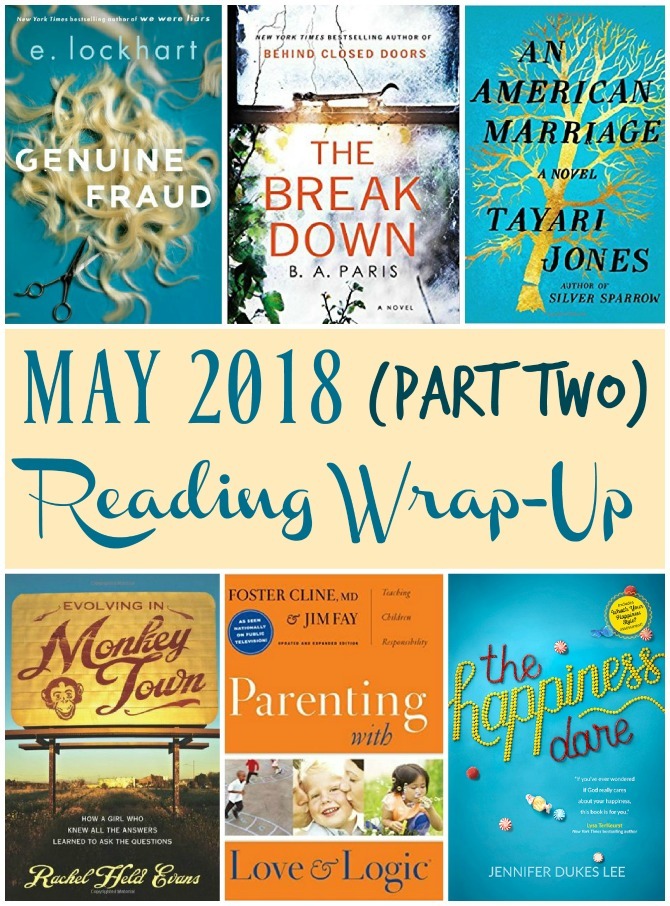
I’m linking up with Modern Mrs. Darcy to share what we’re reading lately. If you’re here from the linkup, thanks for stopping by! Be sure to check out Part One of this month’s Quick Lit, with reviews of the other six book I read in the last month.
What’s the best (or the worst) thing you’ve read in the last month?
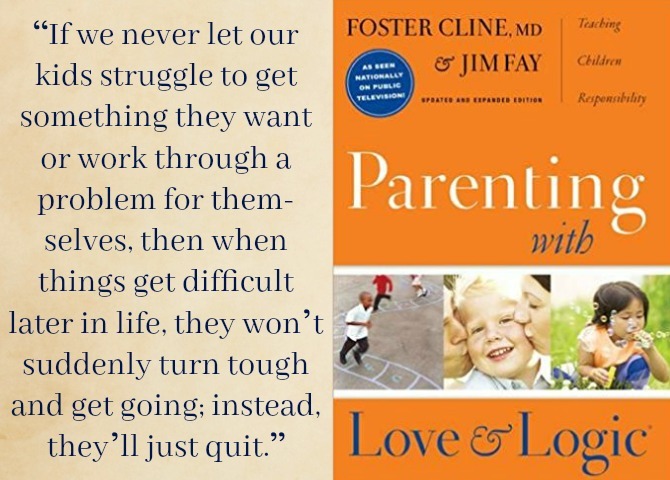
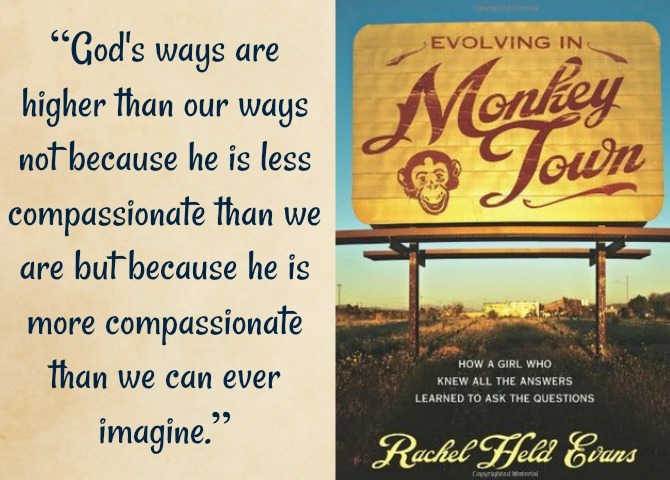
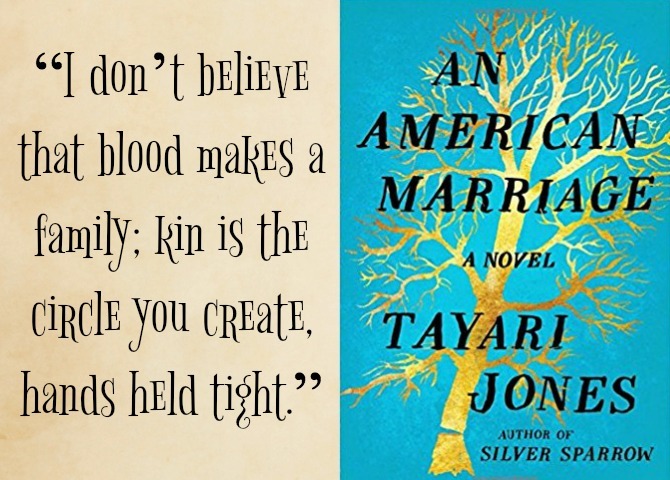
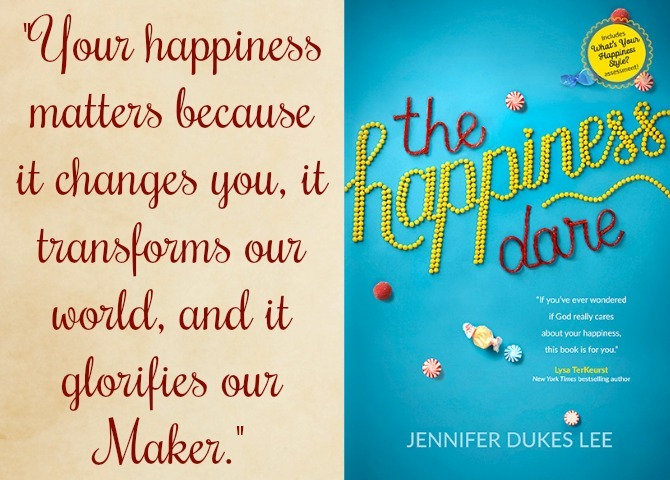
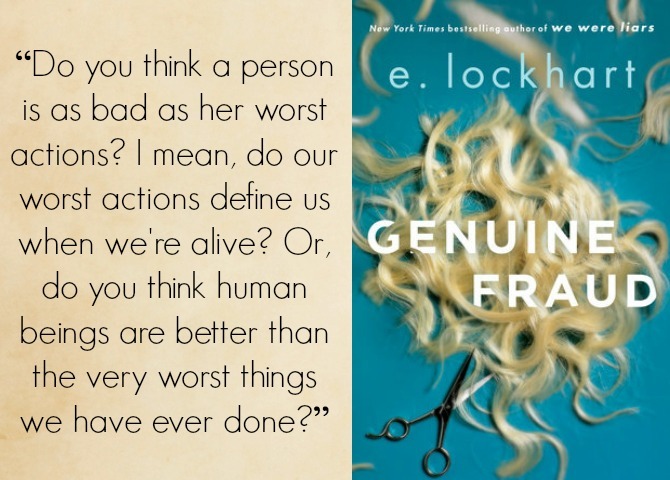
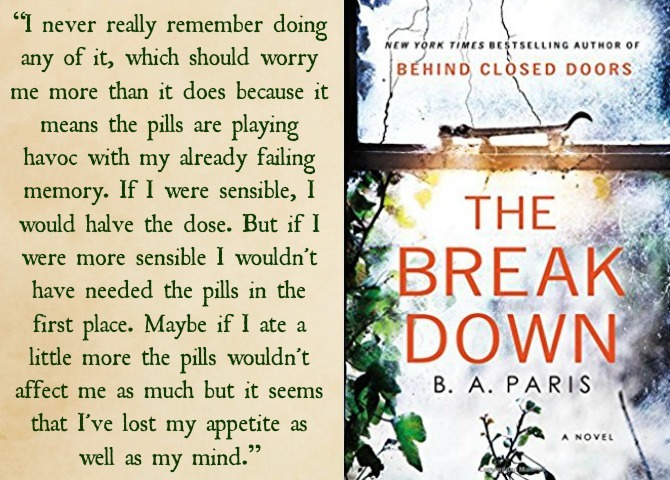
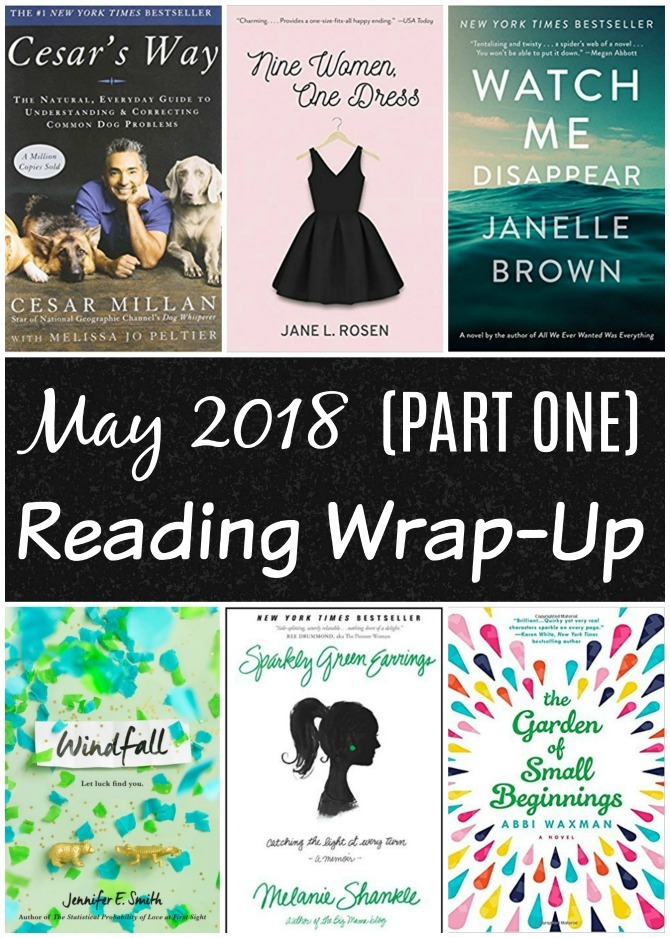
[…] Runner Up: The Happiness Dare (Review) […]